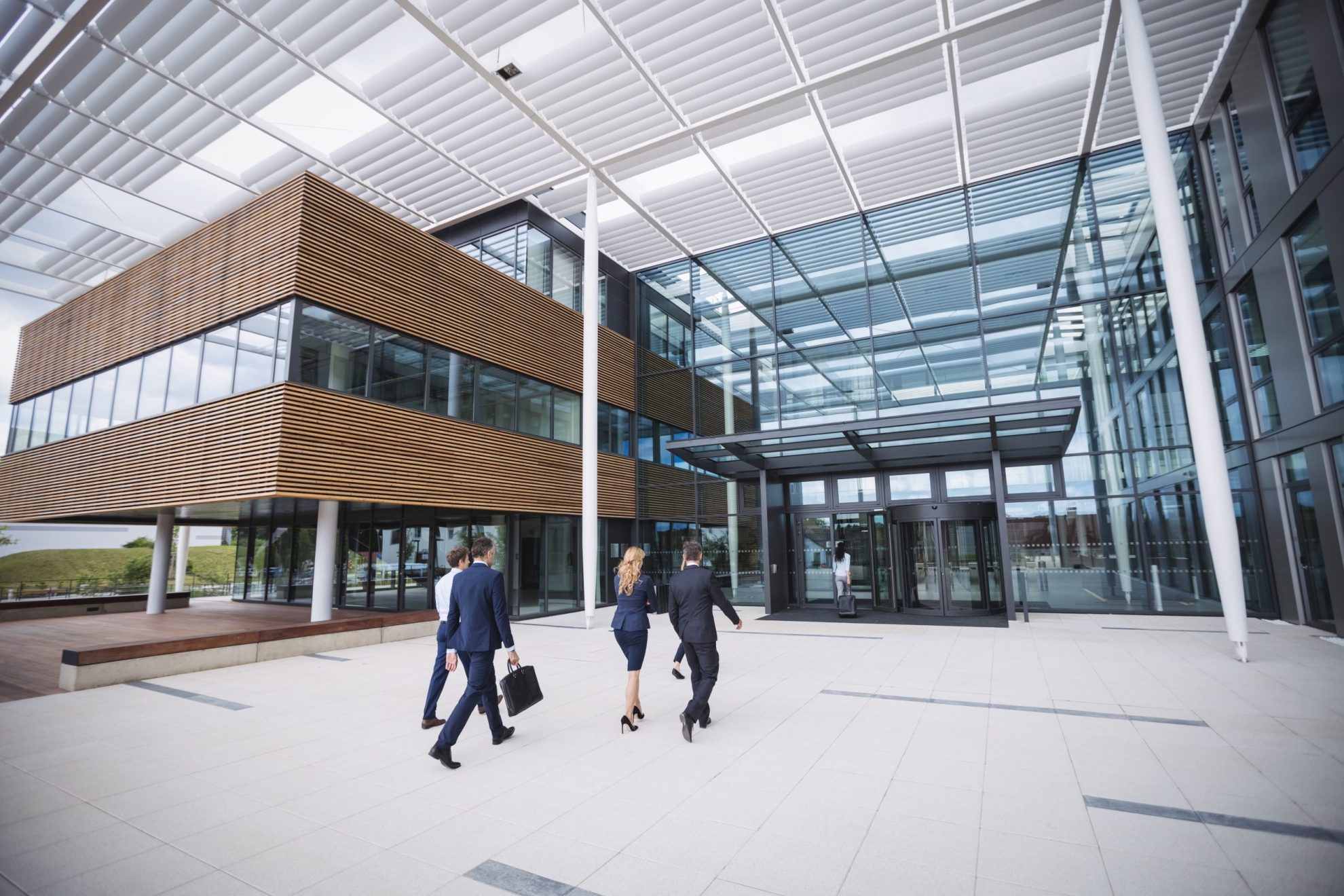Looking to purchase commercial real estate in California? In this comprehensive guide to commercial real estate loans, you’ll find everything you need to know, from the benefits of owning a commercial property to the types of commercial loans at your disposal.
What Are Commercial Real Estate Loans?
A commercial real estate loan is a loan whose main purpose is to purchase a commercial real estate property.
Commercial real estate (often abbreviated as CRE) is a type of real estate used exclusively to conduct business. Some examples of commercial real estate include:
- Office buildings
- Retail shops
- Malls
- Healthcare or wellness centers
- Industrial properties (for example, warehouses)
- Hotels
- Restaurants
Commercial loans are popular because while many business owners start out by renting a property, the benefits of owning your business property are just too good to ignore:
- More flexibility to customize the premises
- Tax benefits
- Diversification of assets
- Possibility of creating new streams of income (by renting out portions of the property, for example)
Your Options for Commercial Real Estate Loans in California
Different businesses have different revenue models and different needs. That’s why there are many alternatives when it comes to commercial real estate loans, including:
- Conventional loans
- SBA 504 loans
- SBA 7(a) loans
- Bridge loans
The type of loan you choose will depend on several factors, including the creditworthiness of your business, how much money you need, how you intend to use the loan proceeds.
In the next section, we’ll help you decide which type of commercial real estate loan makes sense for you and your business.
Conventional Loans
The word “conventional” means “typical” or “common”, so a conventional loan is the type of financing most people are familiar with.
In a conventional loan, a lending institution (such as a bank, for example) lends you money and you repay the loan by making monthly payments over an agreed-upon period of time. For example, conventional loans for commercial real estate tend to range from five to 20 years, although this may vary depending on the lender.
Choose a conventional loan for commercial real estate if:
- You have a good business credit score
- You want to have flexibility in how you use the loan proceeds
- A fixed-rate loan is what you’re looking for
SBA 504 Loans
While conventional loans are the most typical form of lending, your options to purchase commercial real estate don’t end there.
For example, SBA loans are loans partially guaranteed by the Small Business Administration. Thanks to this backing, SBA loans have less stringent requirements and friendlier terms than conventional loans.
The flip side is that the SBA has very specific requirements about how you are allowed to use the proceeds of a loan.
The SBA has two main lending programs: 504 and 7(a). Of these two, 504 is the program geared specifically toward purchasing major fixed assets, such as real estate
Choose a 504 loan for commercial real estate if:
- You are looking for less rigid requirements than conventional loans
- You meet the SBA loan requirements
- Have a tangible net worth of less than $15 million and an average income of less than $5 million after federal income taxes for the previous two years
- Can provide a 10% down payment (it may be higher in some cases)
- You are interested in fixed-rate financing
SBA 7(a) Loans
Although 504 loans are specifically designed for major assets, the SBA has another alternative for business owners looking to purchase commercial real estate: 7(a) loans.
7(a) loans are used for a wide variety of purposes, and are a good option for business transactions where real estate is part of the deal. This is the case, for example, when you purchase a business and the operation includes the commercial real estate property owned by the other business.
Choose a 7(a) loan for commercial real estate if:
- You are purchasing a business and the transaction includes real estate
- Want friendlier loan terms than conventional loans
- You meet the SBA loan requirements
Bridge Loans
Purchasing commercial real estate can be a complex operation. For example, in some cases you need a short-term cash solution while you secure a more permanent type of funding.
This happens in situations where you need capital to cover the costs of a real estate transaction or want to pay off existing debt before closing the deal.
Unlike the solutions listed above, bridge loans are a short-term solution. This means the terms for a bridge loan typically range between six months and a year.
Choose a bridge loan for commercial real estate if:
- You need to get capital fast
- You are looking for short-term financing
- You are OK with a higher-than-average interest rate
To learn more about bridge loans, take a look at this previous post: “Bridge loans: the ultimate guide.”
What Documents do You Need for a Commercial Real Estate Loan in California?
The documents you’ll need for a commercial real estate loan in California may vary depending on the lender and the type of loan.
The below list will give you a general idea of the documents you have to provide if you intend to take out a commercial real estate loan in the Golden State (the documents required may change depending on the lender):
- ID(s) of owner(s)
- Loan application
- Basic business information
- Basic personal information
- Bank statements (personal and business)
- Business licenses and permits
- 1-3 years of tax returns (personal and business)
- Collateral documentation (if required)
Gellyfish: Commercial Real Estate Loans in California and Beyond
Looking for commercial real estate financing that offers flexibility and certainty of execution? Gellyfish Commercial is here to help!
Contact us today by email (info@gellyfishcommercial.com), telephone (877-800-4493), or social media (Facebook, Twitter, LinkedIn), to schedule a free consultation or to learn more about our financing solutions.








